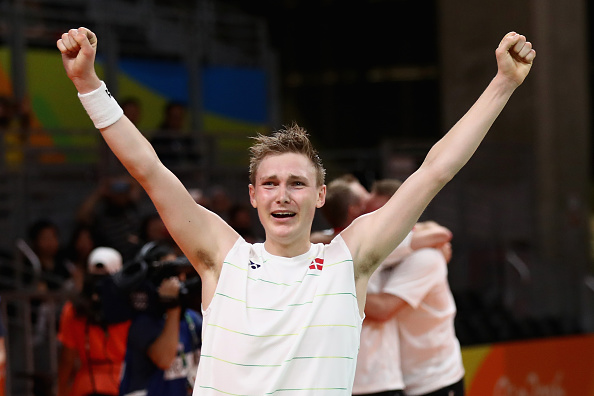Viktor Axelsen and the hopes of the revival of Danish badminton legacy

The tiny Scandinavian nation Denmark, comprising the Jutland Peninsula and numerous islands nation, could have easily passed for a country that offers great tourism opportunities. Search "Denmark" on Google and you will be directed to some wonderful spots that will take your breath away.
Looking at those images, it is very hard to imagine the country has a glorious history in sports. The country
Although Asia is the dominant force in the game today with China, Indonesia, and Malaysia ruling the game with an iron fist, the game had a massive following in the country way back in 1970's and 1980's, when players from all over the world travelled to Denmark to train and play at top notch clubs in domestic circuits. India's all-time greatest player Prakash Padukone was a shining example of this trend, who even settled there after winning the All-England championship in 1980, to enhance his quality of performance, practising with the top Danish star Morten Frost.
Denmark owes a large share of its legacy to a former visiting English troupe, the Strollers team in 1928, who demonstrated the use of the shuttle and the officials ended up playing themselves in the country. The tour reaped rich dividends as it experienced huge popularity among the masses and eventually became an annual feature in Denmark.
Although Nazi troops cut off the light and heat in the playing halls across the country during the second world war, the Danes stuck by the sport and didn't let the culture die down which subsequently led to the production of some all-time greats like Erland Kops, Flemming Delfs, Svend Pri, Morten Frost, Poul-Erik Hoyer Larsen, Peter Rasmussen, Peter Gade, Lene Koppen, Camilla Martin, and Tine Baun.
Kops was the first male badminton player to win seven All England singles titles, achieving the feat in the course of a decade between 1958 and 1967, and beating Frank Devlin’s earlier record of six singles championships. In 1958, the Dane upset the apple cart and brought an end to the eight years of dominance of Malaysian players like Wong Peng Soon and Eddy Choong with his phenomenal stamina and accuracy combined with speed and power.
After the
But since the turn of the millennium, China, Indonesia, and Malaysia established their dominance yet again and with the rise of Lin Dan, who displayed some breathtaking badminton, with a fire in the belly that propelled him to the pinnacle of badminton stardom, Denmark's dominance came to a halt. A country of roughly six million people, Denmark suffered more heartbreaks than most on the court at big ticket international events. In the sport’s flagship competitions like the Olympics, All-England, World Championships, Super Series Finals and the Thomas, Uber, and Sudirman Cups, Denmark and disappointment went hand in hand.

 © Getty
© GettyBut not anymore.
After the occasional burst from Jan O Jorgensen, Viktor Axelsen took the world of badminton by storm by helping the Danish team win the Thomas Cup title in 2016 and also won the European Championships in the same year, beating fellow veteran compatriot Jorgensen. Those successes were sandwiched between his victories at the India Open and the season-ending BWF World Super Series finals in Dubai, where he beat Son Wan Ho in the semis and Tian Houwei in the final. At the Rio Olympics, the lanky lad lost to Chen Long in the semi-finals but beat the legendary Lin Dan in the bronze medal play-off to secure a medal for his country.
He brought that brilliant form to 2017 and didn't have to break a lot of sweat on his way to winning the BWF World Championship medal in Glasgow this year - incidentally, the first edition of the tournament was also won by a Dane - Delfs. Just the fact that he was only the second player apart from Chen and Lin to become World Champion since 2006 was remarkable enough for the world to take notice. A straight sets exhibition against Lin in the final was preceded by a 21-9, 21-10 humiliation of Olympic Gold medalist Chen. The Dane proved that his burst was not a flash in the pan as he followed that up with yet another Superseries victory at the Japan Open and in the process, rose to the No.1 rankings in world badminton.
Now, we are witnessing the decline of Chinese dominance over the game and there rises the opportunity for unrelenting stars like Axelsen to shine under the sun more than ever. And when there is a path to follow and a trail that has already been blazed, Axelsen shouldn't take his foot off the pedal. After all, it is the question of keeping up with the country's huge legacy.